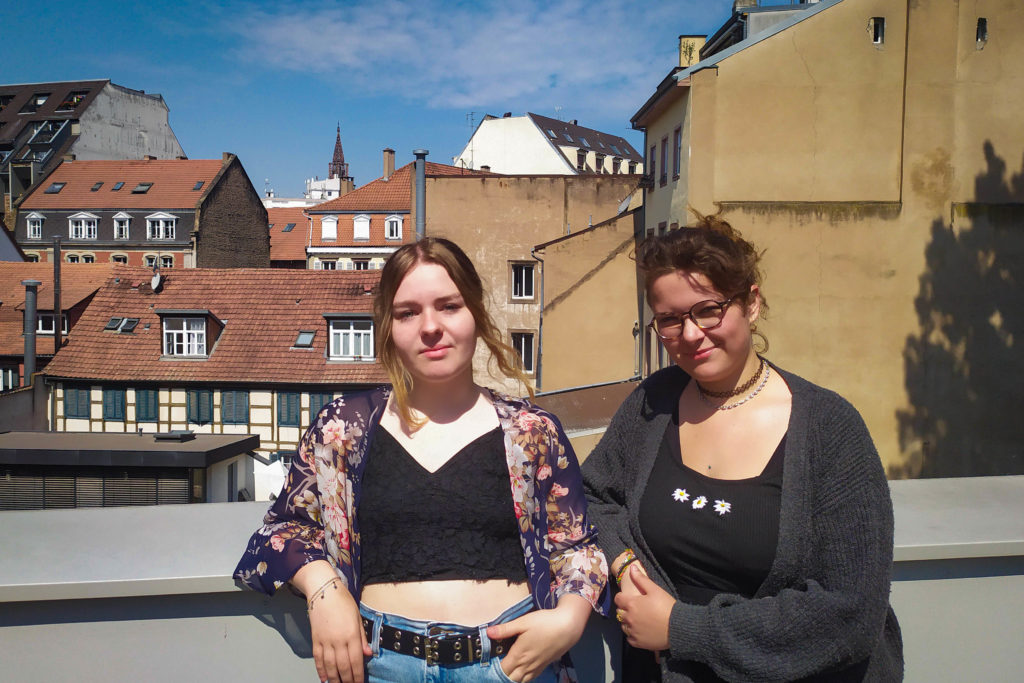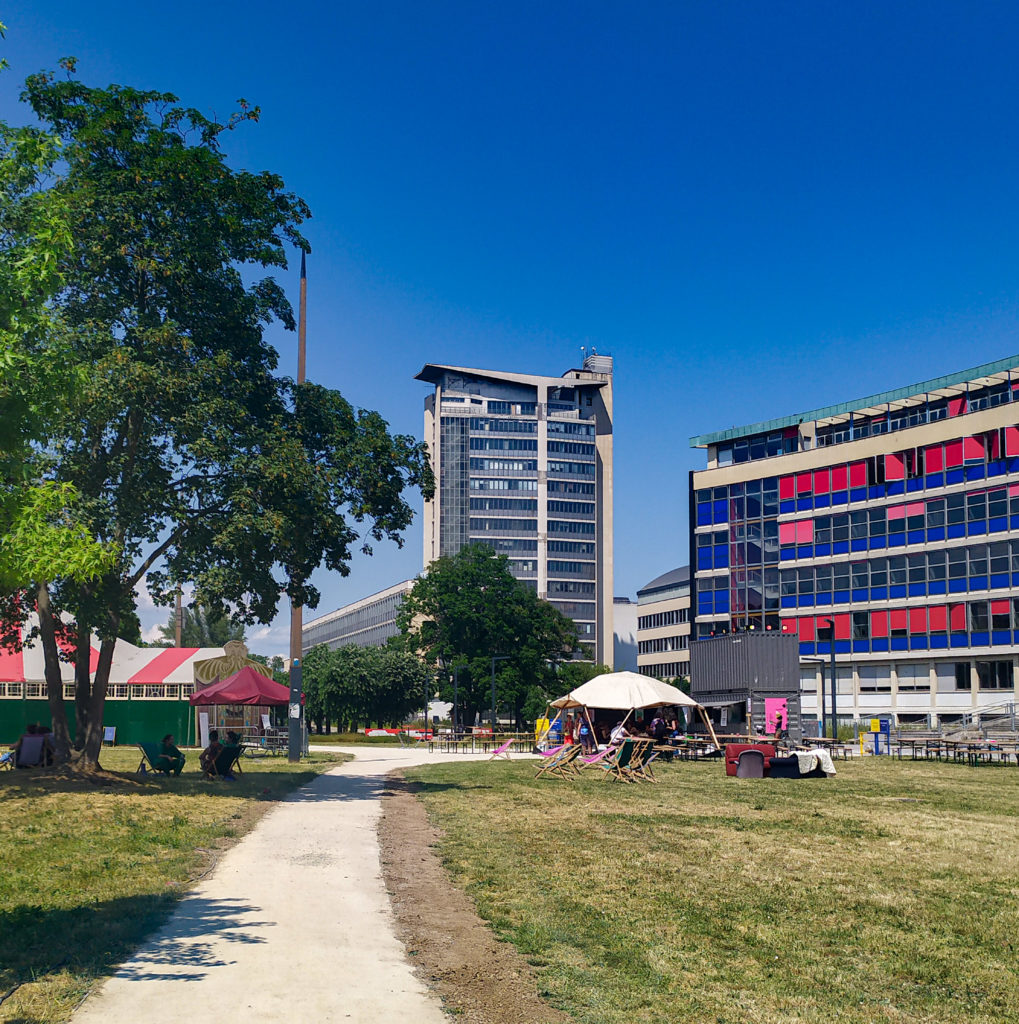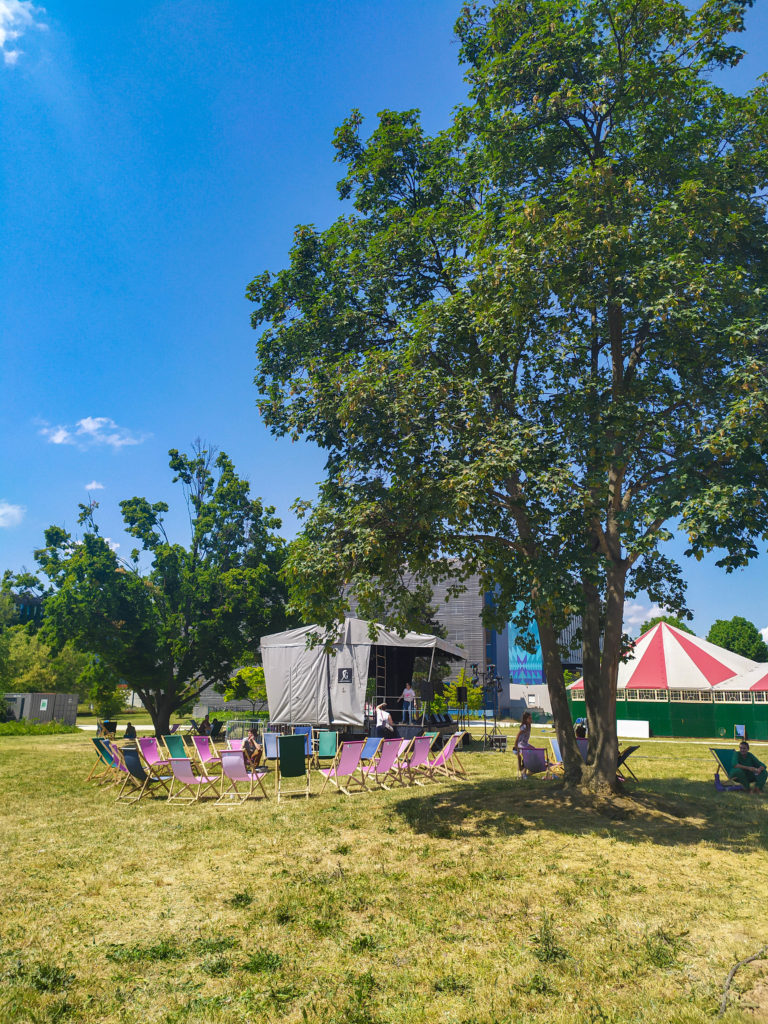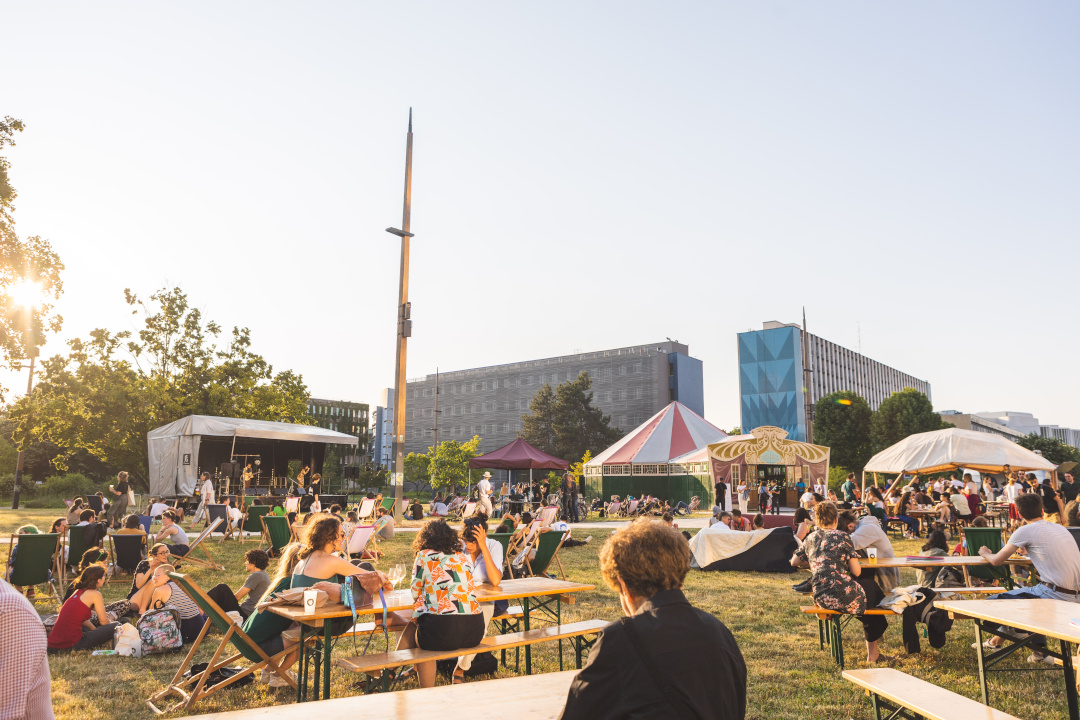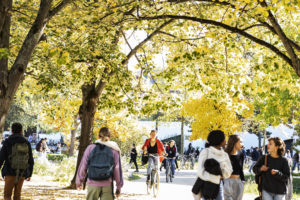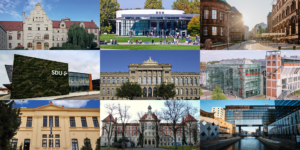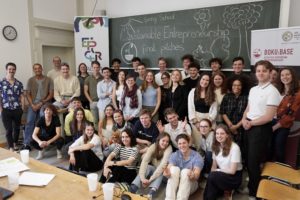During the five days, plenty of activities will succeed. The village is the hearth of the festival, where you could find some rest with bars, libraries, foodtrucks and transats. It is open to everyone, whether you are a student or not. The festival aims to release the young creation through open-minded performances in music, theater, dance and many more.
For the first time in its six years of existence, the DEMOSTRATIF festival is including summer schools to develop an educational programme around the festival for students. As part of a call for interest from the city of Strasbourg concerning its European cultural outreach, the festival proposed to associate the EPICUR alliance with its activities. 6 programmes were then opened up to students from local institutions and EPICUR member universities. (9 universities from 7 European countries). Another way of expanding EPICUR’s training courses.
Each course is supervised by a teacher and an artist:
➔ mutations of interpretation (acting play)
➔ dramatic mutations
➔ plastic mutations (scenography)
➔ educational changes in live performance
➔ political changes in live performance
➔ ecological changes in live performance
The artist Rafi Martin animates the Summer school “ecological changes in live performance” . With an anthropoly and material animation background, he conducts the workshop for a dozen of students. Based on a set of textual references, Rafi and Emma (co-organizer of the workshop) encourage students to question themselves on different themes and turn theoretical principles into artistic practice.
Anna, astudent at the University of Freiburg, participates in the workshop. Being curious, she enrolled in the Summer School without particular expectations; “I don’t think I have expectations, I’m just open to what will come to me. It’s really interesting. I want to know what it is.”
Students on the “mutations plastiques (scénographie)” course run by Emmanuel Charles and Clémentine Cluzeaud prepare their model for Saturday’s fashion show”. The model is the transmission belt between the director and the stage designer” explains the artist. In an eco-design approach, the models are made from materials found in the street, mainly cardboard. The models are archives, just like drawings. Emmanuel Charles affirms that their beauty also lies in their fragile and ephemeral nature.
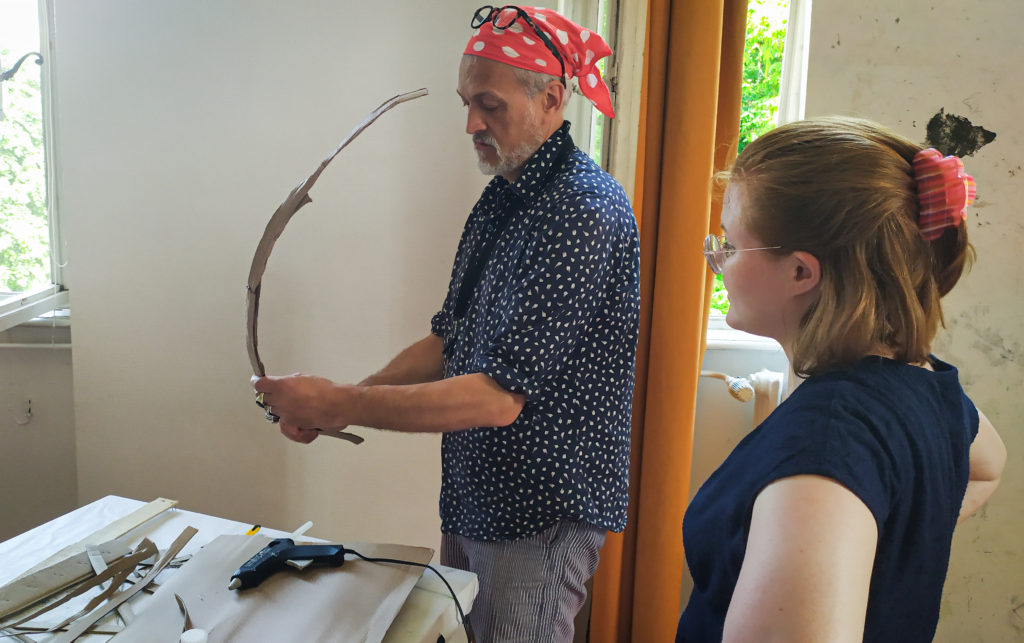
“I would say to my colleagues in Thessaloniki that it is a good idea to follow this programme.”
Nansy, student in AUTh
Nansy Xirodianopuaou is studying cinematogaphy at the unviersity of Thessaloniki. She choosed the”plastic mutations” course as it is linked to its career. For her, it’s more than just a course: “My expectation is to meet other people, to be aware of other cultures and to find out new ways of cinematography here”.
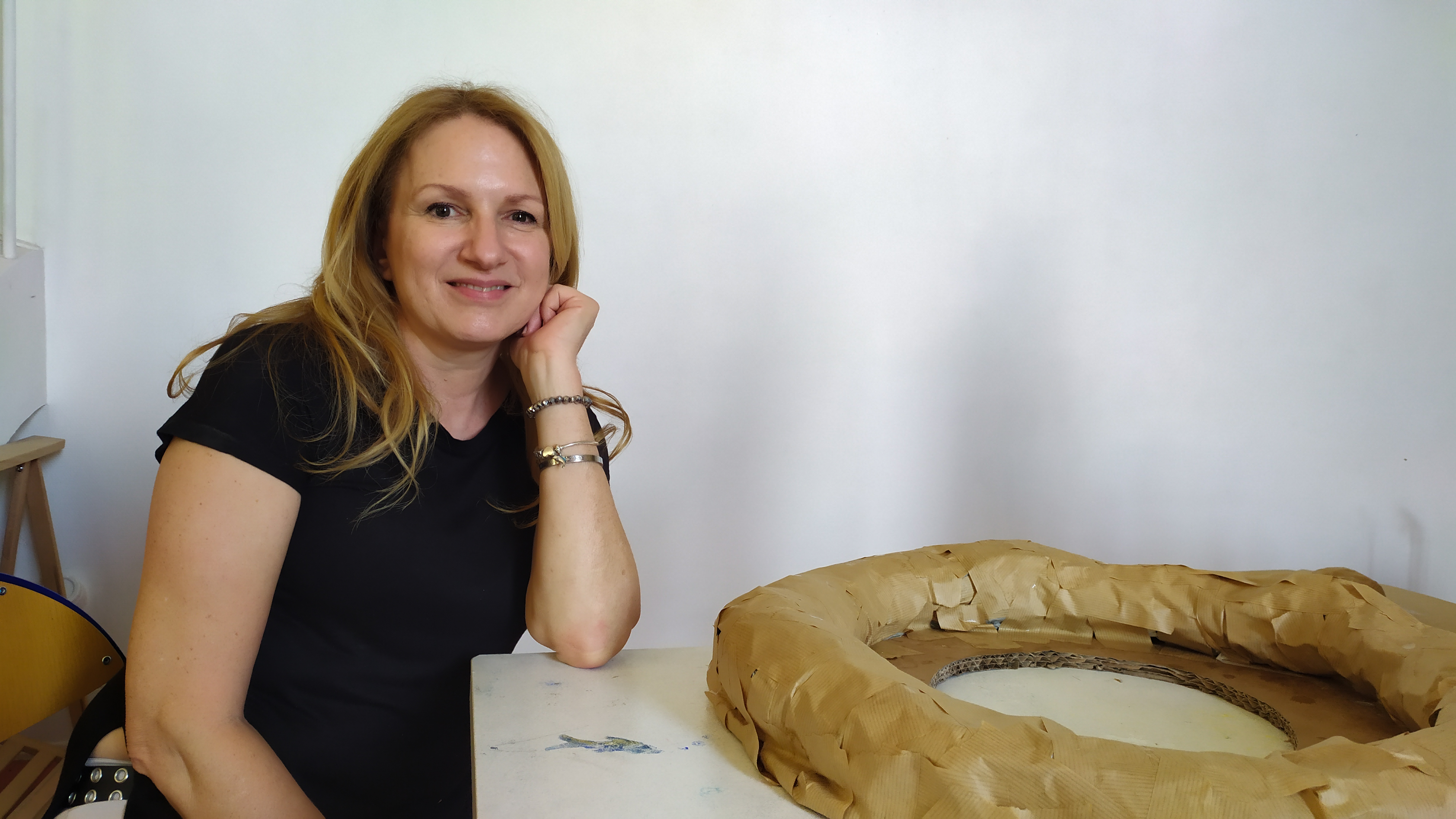
When asked about the festival, Romane Nicolas, playwright and publisher, agrees: DEMOSTRATIF is a wonderful opportunity for people to meet and learn from what’s being done elsewhere in Europe. When asked about the festival, Romane Nicolas, playwright and publisher, agrees: DEMOSTRATIF is a wonderful opportunity for people to meet and learn from what’s being done elsewhere in Europe.
Moreover, “it is an opportunity to meet people, create a network and allow many young artists to think about European mobility, which is a challenge for tomorrow in culture” adds the playwright.
Lison and Justine, french students in performing arts, are participating in the “dramatic mutations” course.
They underline the chance to participate such an event and travel to Strasbourg for free. They discover new themes alongside the summerschool and attend plenty of shows from the DEMOSTRATIF festival, proving once again the relevance of combining education and artistic performance. Both conclude pointing out the fine organisation of the festival; “We have already participated in festivals, those were sometimes messy but this time it’s well organized. We do not regret!”.
